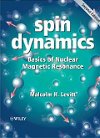The Gordon Research Conference on Computational Aspects of Biomolecular NMR
September 24-29, 2006
Centre Paul Langevin
Aussois, France
LINK
Chair: Martin Blackledge
Vice Chair: Rafael P Bruschweiler
The Gordon Research Conference on Computational Aspects of Biomolecular NMR provides a unique forum for presentation of state-of-the-art research enabling the development of new and better methods for application of NMR to more complex and challenging biomolecular systems.
Nuclear Magnetic Resonance (NMR) spectroscopy is one of the most powerful biophysical techniques for studying biomolecules. Progress in the development of faster and more accurate tools, and of novel approaches to probe hitherto inaccessible aspects of biomolecular behaviour, has regularly resulted directly from advances in computational methodology. This applies to the use of quantum-chemical approaches to calculate NMR chemical shifts and scalar couplings, to the design and implementation of acquisition and processing schemes for multidimensional data, to novel approaches for accelerated and automated structure determination, and to computational approaches to the interpretation of spin relaxation and dipolar couplings. Computation thus represents a major driving force enabling NMR to advance, and continually enhance our ability to understand specific aspects of biomolecular function. The conference will focus on the most recent developments in the field, with sessions and discussions devoted to some of the most exciting and topical aspects of biomolecular NMR, animated by world leaders in the respective sub-fields.
While the conference is centred on computational aspects of biomolecular NMR spectroscopy and their relationship to experimental NMR data, the scientific applications and investigations are at the intersection between many disciplines, including biology, chemistry, bioinformatics, and physics. The conference thus provides an ideal platform for an interdisciplinary exchange of ideas.
The assembly of such a prominent speaker list along with the small format of the conference will provide unique opportunities for graduate students and postdocs for discussions of their research with leaders in the field. Extensive poster sessions will be held to facilitate this process. Moreover, we have reserved 12 20 minute slots for posters that will be upgraded to oral presentations with the idea to give many young scientists an opportunity to present their work to this audience. Thus, the educational opportunities at this meeting will unique and we hope that many young scientists will take advantage. Financial support will be provided for young scientists to this Gordon Research Conference who will make oral presentations. As usual for Gordon Research Conferences places are limited and delegates are encouraged to apply to attend the conference as early as possible.
TOPICS & SPEAKERS
Perspectives on NMR in Structural Biology
(James Prestegard / Hartmut Oschkinat / Guy Montelione)
Data Acquisition and Spectral Processing
(Bernhard Brutscher / Eriks Kupce / Dominique Marion)
Interpreting Chemical Shifts for Protein Structure and Dynamics
(David Case)
Solid State NMR of Proteins
(Anja Böckmann / Rob Tycko / Lyndon Emsley/ Ann McDermott)
Emerging Methods for Protein Structure Determination
(Michael Nilges / Michele Vendruscolo / G. Marius Clore / Markus Zweckstetter / Miguel Llinas)
NMR Studies of Kinetics, Dynamics and Interactions in Larger and more Complex Systems
(Carol Beth Post / Remco Sprangers / Kathleen Hall)
NMR of Partially Folded and Unfolded Proteins
(Harald Schwalbe / Alan Fersht / Peter Wright / Tobin Sosnick / Stephan Grzesiek)
Domain dynamics by NMR
(Rafael Brüschweiler / Claudio Luchinat / Nico Tjandra / David Fushman )
Dynamic modes in proteins
(Martin Blackledge / Daniel Abergel / Arthur Palmer / Christian Griesinger / Dorothee Kern)
Macromolecular complexes using NMR and complementary techniques
(Alexandre Bonvin / Dmitri Svergun )
Alignment and anisotropy
(Ad Bax)



